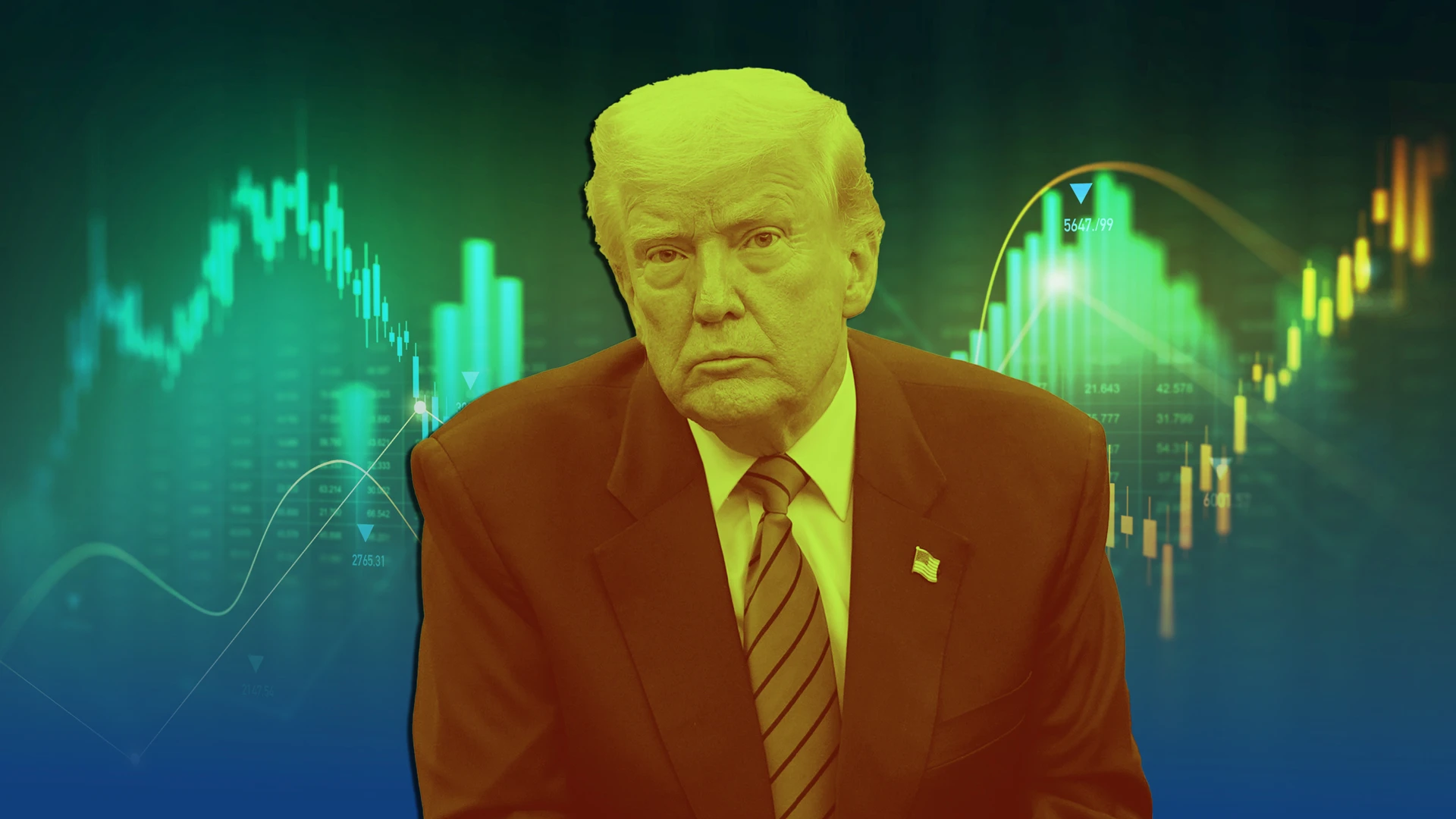By RFE/RL staff – Apr 02, 2025, 11:00 AM CDT
- The US House Foreign Affairs Committee discussed Iran’s nuclear capabilities, with bipartisan agreement on preventing Iran from acquiring nuclear weapons, but disagreement on the best strategy.
- Expert witnesses warned that Iran is close to producing a nuclear weapon and suggested a comprehensive approach involving sanctions, military readiness, and diplomacy.
- The US is considering indirect talks with Iran while boosting its military presence in the Middle East, and Trump has issued both threats and offers to negotiate with Iran’s leadership.

US lawmakers and experts at a House Foreign Affairs Committee hearing underscored a rare bipartisan consensus — preventing Iran from acquiring nuclear weapons as a top priority.
However, divisions remain over how far Washington should go in applying pressure versus pursuing diplomacy.
Republican lawmakers strongly supported the Donald Trump administration’s decision to reinstate the “maximum pressure” campaign that defined his Iran policy during his first term as US president.
“The maximum pressure campaign devastated Iran’s economy and denied it critical resources. A nuclear Iran is not an option,” Subcommittee Chairman Mike Lawler (Republican-New York) said on April 1.
Democratic lawmakers also acknowledged the threat posed by Iran but stressed the importance of diplomacy.
“There is bipartisan understanding of the danger posed by Iran as the world’s foremost state sponsor of terrorism. We must combine pressure with diplomatic engagement,” Ranking Member Gregory Meeks (Democratic-New York) said.
Three expert witnesses provided testimony on the challenges posed by Iran and the potential consequences of US strategies.
Norman Roule, a senior advisor at the Center for Strategic and International Studies, warned that Iran is advancing its nuclear program and could produce a weapon within months if left unchecked.
“Iran is closer than ever to producing a nuclear weapon,” Roule warned, adding that military strikes could only delay its program. He called for a comprehensive approach that combines sanctions, military readiness, and diplomacy.
Claire Jungman of United Against Nuclear Iran (UANI) highlighted the economic toll that sanctions have taken on the country, noting that its economy remains fragile due to inflation and currency devaluation.
She stressed the importance of targeting Iran’s oil trade with China in violation of US sanctions and leveraging its economic vulnerabilities to weaken its support for regional proxies like the US-designated Lebanese terrorist group Hezbollah.
Dana Stroul of The Washington Institute for Near East Policy noted that military strikes could escalate into broader conflict and urged Washington to pair pressure tactics with robust diplomacy.
She added that “the pillars of Iran’s security strategy”, including its nuclear program, proxy network, and arsenal of missiles and drones, are “more vulnerable today than ever.”
Trump has threatened to bomb Iran if it fails to reach a deal with Washington. Tehran has dismissed the threat, describing it as an “affront” to peace and security.
Iran last week delivered a formal response to Trump’s letter proposing direct talks to reach a new nuclear deal. Tehran has dismissed direct negotiations as long as the “maximum pressure” campaign is in effect.
Axios reports that the White House is “seriously considering” Iran’s proposal for indirect talks while boosting its military presence in the Middle East.
Addressing Iranian Supreme Leader Ayatollah Ali Khamenei, Committee Chairman Brian Mast (Republican-Florida) said Trump “will work with you to peacefully end” Iran’s nuclear and ballistic missile programs.
“Or, President Trump will destroy your nuclear weapons and ballistic missile program. You get to choose the remedy,” he said.
Iran maintains its nuclear program is peaceful, but there are growing calls in Iran to weaponize it as a form of deterrence against the United States and Israel.
By RFE/RL
More Top Reads From Oilprice.com
- Russian Arctic LNG 2 Project Resumes Gas Processing
- Renewables Alone Cannot Power AI Infrastructure
- India Hikes U.S. Crude Oil Imports by 67% in March
![]()
RFE/RL staff
RFE/RL journalists report the news in 21 countries where a free press is banned by the government or not fully established. We provide what many…
Related posts
By RFE/RL staff – Apr 02, 2025, 11:00 AM CDT
- The US House Foreign Affairs Committee discussed Iran’s nuclear capabilities, with bipartisan agreement on preventing Iran from acquiring nuclear weapons, but disagreement on the best strategy.
- Expert witnesses warned that Iran is close to producing a nuclear weapon and suggested a comprehensive approach involving sanctions, military readiness, and diplomacy.
- The US is considering indirect talks with Iran while boosting its military presence in the Middle East, and Trump has issued both threats and offers to negotiate with Iran’s leadership.

US lawmakers and experts at a House Foreign Affairs Committee hearing underscored a rare bipartisan consensus — preventing Iran from acquiring nuclear weapons as a top priority.
However, divisions remain over how far Washington should go in applying pressure versus pursuing diplomacy.
Republican lawmakers strongly supported the Donald Trump administration’s decision to reinstate the “maximum pressure” campaign that defined his Iran policy during his first term as US president.
“The maximum pressure campaign devastated Iran’s economy and denied it critical resources. A nuclear Iran is not an option,” Subcommittee Chairman Mike Lawler (Republican-New York) said on April 1.
Democratic lawmakers also acknowledged the threat posed by Iran but stressed the importance of diplomacy.
“There is bipartisan understanding of the danger posed by Iran as the world’s foremost state sponsor of terrorism. We must combine pressure with diplomatic engagement,” Ranking Member Gregory Meeks (Democratic-New York) said.
Three expert witnesses provided testimony on the challenges posed by Iran and the potential consequences of US strategies.
Norman Roule, a senior advisor at the Center for Strategic and International Studies, warned that Iran is advancing its nuclear program and could produce a weapon within months if left unchecked.
“Iran is closer than ever to producing a nuclear weapon,” Roule warned, adding that military strikes could only delay its program. He called for a comprehensive approach that combines sanctions, military readiness, and diplomacy.
Claire Jungman of United Against Nuclear Iran (UANI) highlighted the economic toll that sanctions have taken on the country, noting that its economy remains fragile due to inflation and currency devaluation.
She stressed the importance of targeting Iran’s oil trade with China in violation of US sanctions and leveraging its economic vulnerabilities to weaken its support for regional proxies like the US-designated Lebanese terrorist group Hezbollah.
Dana Stroul of The Washington Institute for Near East Policy noted that military strikes could escalate into broader conflict and urged Washington to pair pressure tactics with robust diplomacy.
She added that “the pillars of Iran’s security strategy”, including its nuclear program, proxy network, and arsenal of missiles and drones, are “more vulnerable today than ever.”
Trump has threatened to bomb Iran if it fails to reach a deal with Washington. Tehran has dismissed the threat, describing it as an “affront” to peace and security.
Iran last week delivered a formal response to Trump’s letter proposing direct talks to reach a new nuclear deal. Tehran has dismissed direct negotiations as long as the “maximum pressure” campaign is in effect.
Axios reports that the White House is “seriously considering” Iran’s proposal for indirect talks while boosting its military presence in the Middle East.
Addressing Iranian Supreme Leader Ayatollah Ali Khamenei, Committee Chairman Brian Mast (Republican-Florida) said Trump “will work with you to peacefully end” Iran’s nuclear and ballistic missile programs.
“Or, President Trump will destroy your nuclear weapons and ballistic missile program. You get to choose the remedy,” he said.
Iran maintains its nuclear program is peaceful, but there are growing calls in Iran to weaponize it as a form of deterrence against the United States and Israel.
By RFE/RL
More Top Reads From Oilprice.com
- Russian Arctic LNG 2 Project Resumes Gas Processing
- Renewables Alone Cannot Power AI Infrastructure
- India Hikes U.S. Crude Oil Imports by 67% in March
![]()
RFE/RL staff
RFE/RL journalists report the news in 21 countries where a free press is banned by the government or not fully established. We provide what many…

















